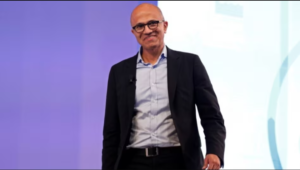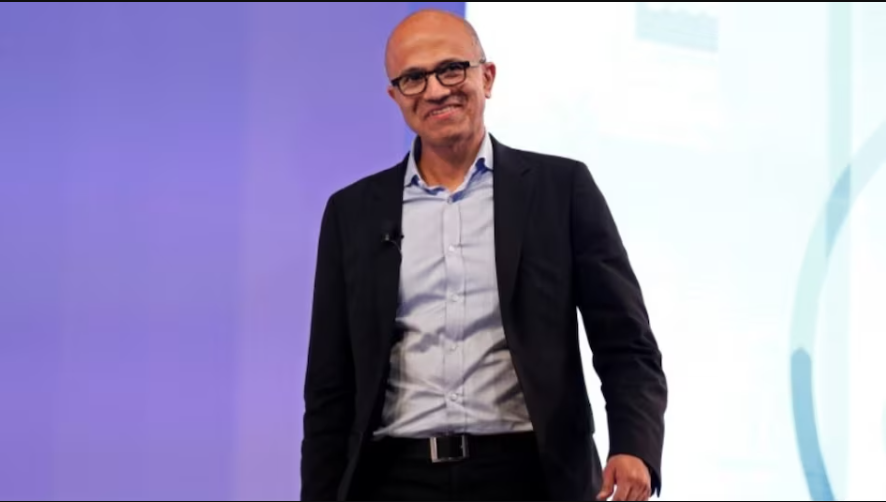Microsoft CEO Satya Nadella presented a new and invigorating viewpoint regarding the potential advantages of AI in the job market. In contrast to the misconception that there is a limited amount of work available in an economy, known as the lump of labor fallacy, Nadella proposes that labor markets are flexible and can adjust to technological progress.

In a recent interview with CNBC-TV18, Satya Nadella, the CEO of Microsoft, expressed his belief that while artificial intelligence (AI) may lead to the displacement of certain jobs, it will also create new opportunities and facilitate accelerated learning. Nadella highlighted the transformative potential of AI, emphasizing its ability to democratize access to technology and knowledge, thereby enabling individuals to enhance their learning capabilities.
Nadella’s optimism regarding AI stems from his observation of its rapid integration across various sectors. He described it as the “fastest rate of diffusion” he has ever witnessed, highlighting the widespread adoption of AI. However, Nadella goes beyond acknowledging its popularity and emphasizes its ability to tangibly impact economic productivity. He believes that AI is not just a passing trend but a force that can bring about significant positive changes in the way we work and learn.
Overall, Nadella’s perspective on AI is one of optimism and recognition of its potential to both disrupt and create new opportunities. He sees AI as a tool that can empower individuals by providing them with access to technology and knowledge, ultimately enabling them to navigate the learning curve more effectively. Additionally, he acknowledges the transformative impact of AI on economic productivity, highlighting its ability to bring about tangible changes in various sectors.
Nadella has a vision of a future where AI can act as a personal tutor for children, simplifying complex information and reducing the anxiety that comes with learning. According to him, AI will enhance our cognitive abilities, comparing it to a “steam engine for the mind,” but he emphasizes that critical thinking will always be a uniquely human pursuit.
In addition, Nadella presents a fresh perspective on the potential advantages of AI in the job market. Contrary to the belief in the lump of labor fallacy, which assumes a fixed amount of work in an economy, Nadella argues that labor markets are dynamic and capable of adapting to technological advancements.
The fallacy of the lump of labor has been a subject of discussion in relation to the impact of AI and automation on employment. This misconception assumes that there is a fixed amount of work available and that the introduction of AI and automation will inevitably result in a decrease in the overall number of job opportunities.
However, evidence contradicts this belief and suggests that while AI may displace certain jobs, especially those that involve repetitive and routine tasks, it also creates new avenues for employment. For example, according to the World Economic Forum, by 2025, AI is expected to displace 75 million jobs but at the same time generate 133 million new jobs.
During the interview, Nadella emphasized the role of AI in reducing the learning curve for workers, including those in the middle of their careers, enabling them to acquire new skills more quickly and efficiently. He highlighted that this aspect of AI can be particularly empowering as it facilitates career development and personal growth.
AI Advantages
In addition, AI enables frontline workers to access expertise conveniently, thereby enhancing their efficiency in task execution. Through immediate skills training and on-site assistance, AI empowers workers in different industries, potentially resulting in higher wages as they become more proficient in providing expert advice or services, according to his statement.
Moreover, Nadella perceives AI as a valuable asset for countries such as India, where he believes the robust market and growth rate are ideal for leveraging AI-driven progress and achieving greater productivity.




Leave a Reply